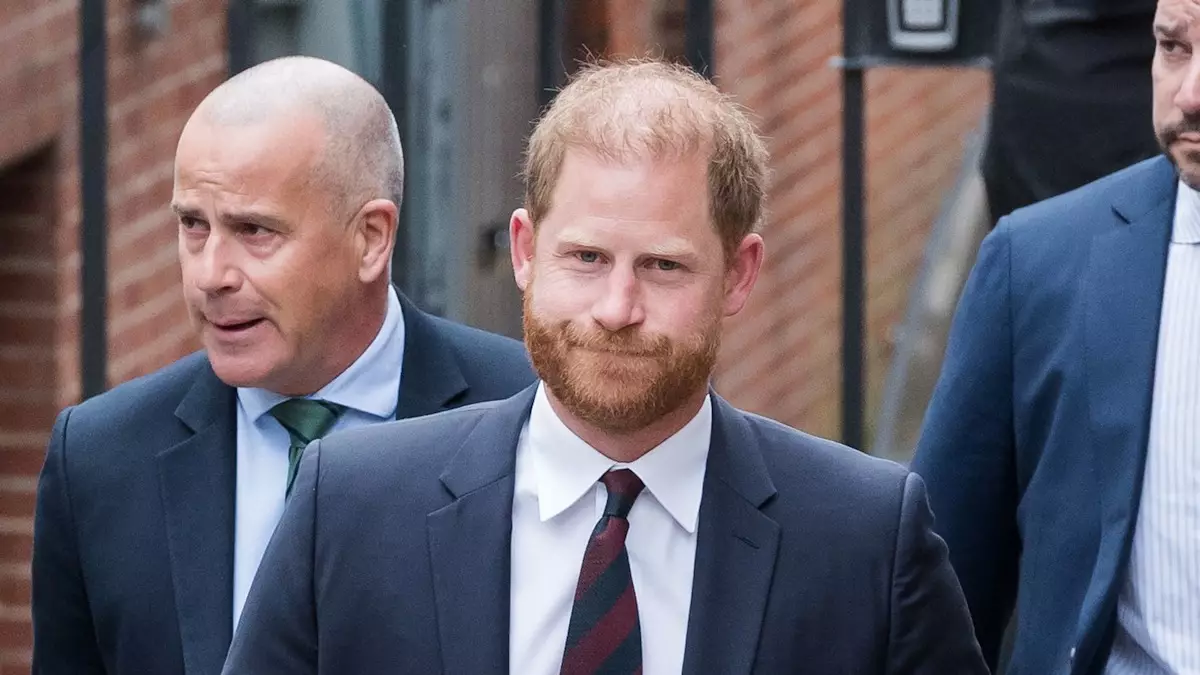In recent events, the Duke of Sussex, Prince Harry, found himself the target of humor during a speech delivered by British politician Nigel Farage at the Bitcoin Conference in Las Vegas. Farage, known for his sharp tongue and controversial viewpoints, entertained the audience with a remark that juxtaposed Harry’s American residence against the usual political discourse between the UK and the US. While political banter is not uncommon, the nature of Farage’s joke—linking Harry’s relocation to America with a critique of American ‘wokeness’—raises significant questions about the intersections of celebrity, politics, and public opinion.
Farage’s quip, “But you also send us bad things, because you sent us woke. But you know what, we’ve got you back, because we sent you Prince Harry,” elicited laughter from the audience and underscored how public figures often utilize humor to critique or highlight social issues. In a culture hardwired to appreciate witty retorts, the line suggests a broader narrative of transatlantic critique, where Harry is depicted as a sort of cultural culminator of perceived grievances flooding from America to the UK.
Harry’s New Life: A Mixed Bag of Perspectives
Prince Harry has created a new life for himself in California, stepping away from royal duties and embracing a lifestyle that resonates with autonomy and personal expression. His recent comments at the New York Times DealBook Summit reveal a man who appears to revel in this newfound independence, articulating satisfaction about raising his children in an environment he believes aligns with the aspirations of his late mother, Princess Diana. It is an emotionally charged declaration, revealing Harry’s quest for purpose beyond royal expectations.
Yet, this very journey has attracted waves of criticism and ridicule from those, like Farage, who feel that Harry represents a frivolous aspect of modern celebrity culture. The juxtaposition of his enthusiastic embrace of American ideals against a backdrop of scorn from his homeland provides fertile ground for examination. Why does Farage feel justified in using Harry as a punchline? What does this indicate about the perception of Harry within the UK?
Britain’s Love-Hate Relationship with its Royals
The British public’s perception of its royals is complex, often oscillating between reverence and ridicule. Farage’s jest highlights a growing trend in the way public figures are scrutinized, especially those who venture outside of their traditional roles. As Harry and Meghan Markle navigate life in the media spotlight, they also contend with a barrage of derision that often borders on obsessive.
While the Duke’s current existence aims for a balance between advocacy, celebrity, and family life, the scrutiny he faces serves as a stark reminder of how public figures can easily become enmeshed in debates about national identity and cultural exchange. Farage’s remarks can be seen as a microcosm of a larger dialog—often laden with irony—around what it means to be British in a globalized context.
Media and the Role of Satire
The role of satire in political commentary fuels a dialogue that is both entertaining and revealing. Politicians like Farage often lean into humor not merely as a form of entertainment but as a strategy to provoke thought and galvanize public sentiment. Harry’s public persona, post-royalty, embodies a myriad of issues—mental health, celebrity culture, and the critique of royal traditions.
The continuous attention given to Harry and Meghan suggests that they symbolize not just the evolution of royalty but also the shifting cultural dynamics within the UK. Farage’s ability to elicit laughter by referencing Harry underscores a sentiment that resonates with many: the perception that Harry, in leaving royal duties, offers a packaged product of ‘wokeness’ back to Britain, inviting further debate about the implications of this movement and its cultural ramifications.
In many ways, the dynamic between figures like Farage and Harry encapsulates a modern-day folklore. It serves to illustrate how public figures, whether embraced or derided, become conduits for larger societal conversations, and perhaps Farage’s quip was less about Harry himself and more a reflection of a restless nation grappling with its evolving identity.

